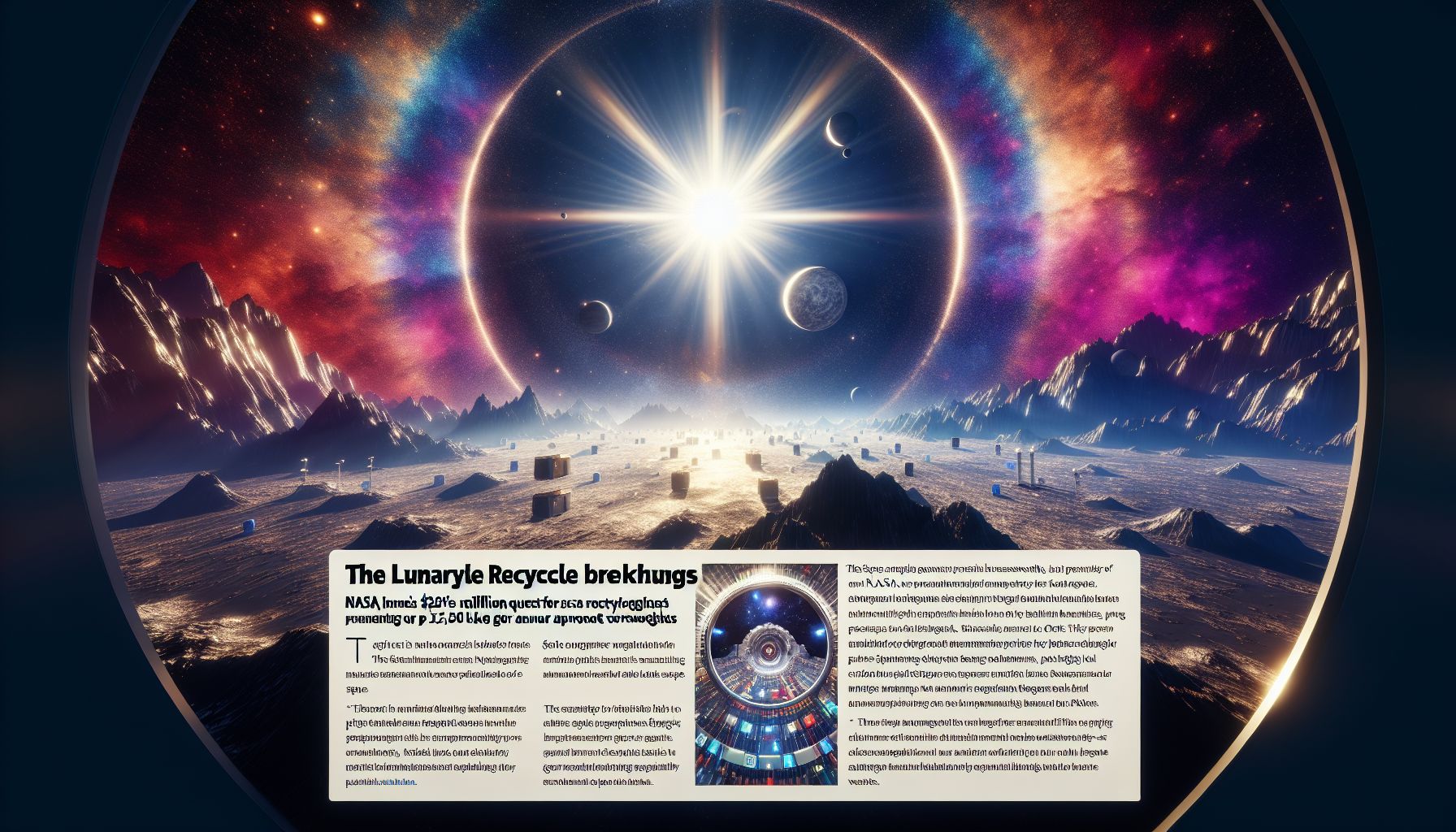NASA's $27 Million Quest for Space Recycling Breakthroughs

Washington, Friday, 11 October 2024.
NASA launches a $27 million initiative to revolutionize waste management in deep space missions. The LunaRecycle challenge seeks innovative, energy-efficient solutions for recycling up to 2,500 kg of annual astronaut waste, aiming to enhance sustainability both in space and on Earth.
Aiming for Sustainable Space Exploration
As NASA continues to push the boundaries of space exploration, the critical issue of waste management in space becomes increasingly significant. The LunaRecycle challenge, launched with a $27 million fund, is designed to address this challenge by incentivizing innovative recycling solutions. With astronauts producing approximately 2,500 kilograms of waste annually, effective waste management solutions are not only essential for the safety of the crew but also for the sustainability of long-duration missions.
Details of the LunaRecycle Challenge
NASA’s initiative offers up to $3 million in cash prizes for solutions that are ‘energy-efficient, low-mass, and low-impact.’ The challenge is split into two tracks: the first focuses on hardware capable of recycling waste on the Moon’s surface, while the second involves creating a virtual model of a complete recycling system. The aim is to develop solutions that could potentially revolutionize current practices and inspire innovations for recycling issues on Earth[1][2].
Preparing for Artemis II
This initiative coincides with preparations for the Artemis II mission, scheduled for September 2025. This mission will be NASA’s first human-crewed venture back to the Moon since the Apollo missions. Artemis II is a pivotal step in NASA’s broader plan, as it will prepare for future missions that aim to land the first woman, the first person of color, and an international partner on the Moon. The mission will last 10 days and will take astronauts approximately 7,400 kilometers beyond the far side of the Moon[1][2].
Impacts Beyond Space
NASA hopes that the innovations from the LunaRecycle challenge will not only enhance the efficiency of space missions but also offer new perspectives on recycling challenges on Earth. As Amy Kaminski, NASA’s program executive for Prizes, Challenges, and Crowdsourcing, emphasized, ‘Operating sustainably is an important consideration for NASA as we make discoveries and conduct research both away from home and on Earth.’ This initiative underscores NASA’s commitment to sustainability, illustrating how space exploration can drive environmental innovations on our home planet[1][2].

